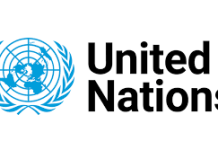Dr. Mariya Mahmoud, Minister of State for the Federal Capital Territory (FCT), has launched new Cardiopulmonary Resuscitation (CPR) Centres in Abuja, aiming to reduce the rising cases of cardiac arrest.
This initiative, introduced alongside the Bring Back to Life (BBL) programme in collaboration with the Nigerian Cardiac Society (NCS), focuses on training local communities to respond swiftly and effectively to sudden cardiac emergencies.
During the inauguration, Mahmoud emphasized the importance of quick intervention, announcing that the programme will also place Public Access Defibrillators (PADs) in high-traffic public spaces to ensure life-saving resources are easily accessible. The BBL programme is designed to teach community members vital CPR techniques, improving their ability to handle cardiac arrest situations until professional help arrives.
Mahmoud highlighted the growing concern over cardiovascular disease, which has become one of the leading causes of death and illness globally, with Nigeria experiencing an alarming increase in cases. In response, the FCT Administration is enhancing healthcare infrastructure while focusing on building community readiness for cardiac emergencies.
“CPR is a proven lifesaving technique, and when performed immediately, it can double or even triple a person’s chances of survival,” Mahmoud stated. She noted that empowering communities with CPR skills ensures a faster response during emergencies, drastically improving survival rates. She also praised the Nigerian Cardiac Society for its crucial role in training the public and called for continued public-private partnerships to tackle health challenges, aligning with President Bola Tinubu’s Renewed Hope Agenda.
The minister urged residents of Abuja, and Nigerians in general, to adopt healthier lifestyles to combat cardiovascular diseases. Mahmoud stressed the importance of regular exercise, reducing calorie and salt intake, and avoiding smoking and excessive alcohol consumption, describing these as cost-effective ways to prevent heart conditions.
Dr. Akinyemi Aje, Chairman of the Bring Back to Life programme, explained that the CPR centres have been strategically placed in public areas, as 89% of cardiac arrests happen outside of hospitals. He raised concerns over the lack of proper CPR knowledge among first responders, noting that many attempts to help are often ineffective due to improper techniques.
Aje pointed out that in many cases, bystanders prioritize recording the incident on their phones for social media over helping the victim. He emphasized that cases of people “slumping and dying” can occur anywhere—at home, in the office, or even during high-level meetings. However, he assured the public that “slump and live” scenarios are achievable with proper training and awareness.
“Everyone, including children, should be equipped with the skills to perform CPR and save lives in the critical moments following a cardiac arrest,” Aje concluded.













